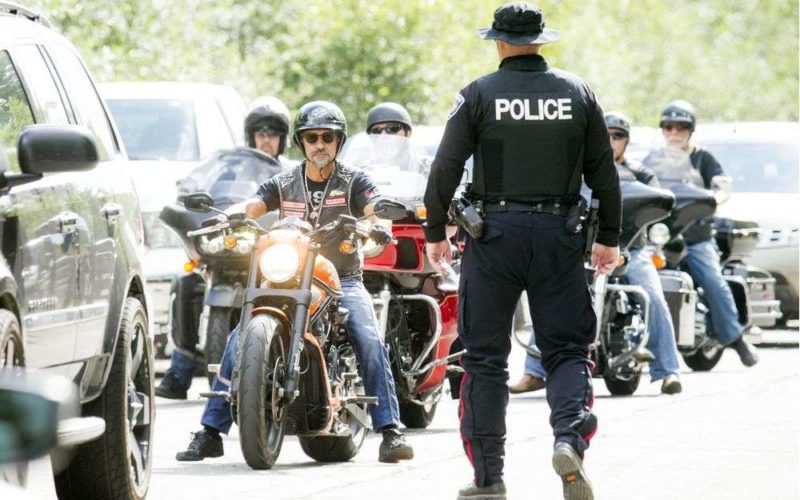From threats and intimidation to drugs and firearms trafficking, two men working to break down Tasmania’s “outlaw motorcycle clubs” have seen it all.
Tasmania Police Detective Inspector Damien George and Sergeant Nick Gibson from the Australian Federal Police Tasmania National Anti-Gang Squad are dedicated to weeding out the state’s “outlaw motorcycle clubs”.
Inspector George looks after the serious crime support area.
“One of the streams in that division is the Serious Organised Crime Unit, which consists of investigation teams. We engage with the Australian Federal Police National AntiGang Squad and we’re collaborative with them in investigating criminal gangs, which clearly includes outlaw motorcycle gangs,” he said.
Sergeant Gibson’s role is to provide the support of the AFP and federal government to Tasmania Police to enable them to counter organised crime in Tasmania.
They said one of the biggest impacts outlaw bikie clubs had on the community was the importation of drugs. Sergeant Gibson said the drugs Tasmania Police or the AFP might seize on streets usually haven’t originated in the state — often being brought in and sold by club members or associates.
“That shows the level of organisation that these groups manage throughout the world and throughout Australia, to be able to get those drugs here to the streets,” he said.
“They’re not selling to other bikies, they’re selling to Tasmanians that are drug dependant and suffer from the actions of those people trying to make money.”
Sergeant Gibson said the AFP was also focused on identifying where bikie money comes from, confiscating assets, and stopping the gangs from defrauding the commonwealth and state governments.
“We have people now before the court for Centrelink offences and the like, so it’s not just about the drugs, it’s about offending,” he said.
Inspector George said aside from the direct impacts of criminal activities, these clubs also had a huge affect on the community.
“Every one of these members obviously has a family, they have a father or a mother, they might have a brother or sister, they might have children as well,” he said. “Their activities affect everyone of those people.”
Sergeant Gibson said being an outlaw bikie club member also affected the ability of members and their families to travel overseas.
“If a member of a motorcycle gang here decides he wants to travel to the US with his family, he might find that he arrives in the US and we’ve provided information about him, and he and his family are refused entry,” he said.
“They’re not going to Disney World with the kids, they’re not going to Thailand, they’ll be sent back to Australia at their cost. These countries recognise the significance of these people.
“The effect that it does have on the families is a lifelong effect and it’s a whole of life effect, because of his choice to be part of this group.”
Inspector George said a major issue for gang members and their families was what happened when members were made to leave a club.
“The standings in the gang when you leave are either a good or a bad standing,” he said. “You leave with bad standing, that debt, and it’s not just a significant financial debt but the debt that you owe that club, will live with you and your immediate relatives and family for a long period.
“The threats, the intimidation begin — because you know club business, they are going to make sure you’re never going to share that.”
The officers said for many members of the community, even just hearing a Harley Davidson motorcycle or seeing bikie club members in leathers was intimidating.
“You have 350 of those bikes roll into your town, then the noise that is with that in isolation is intimidating, let alone when they park the 350 bikes unannounced in the forecourt of your service station,” Inspector George said.
“It may well be good for the business at that particular point in time, but what about the locals that are trying to get to that business for the period that (the outlaw bikie gang) take over?
“They’re intimidating and we’ve all seen them.”
Inspector George said their message for outlaw bikie club members was simple.
“We won’t put up with your criminal behaviour,” he said. “Tasmanians do not need to be intimidated or live in fear.”
Sergeant Gibson said the clubs looking to establish footholds in Tasmania would continue to be targeted.
“We won’t stop until we can remove them, and remove their impact on the state.”
Make sure you have subscribed to our Facebook page or Twitter to stay tuned!
Source: Mercury (Hobart)
